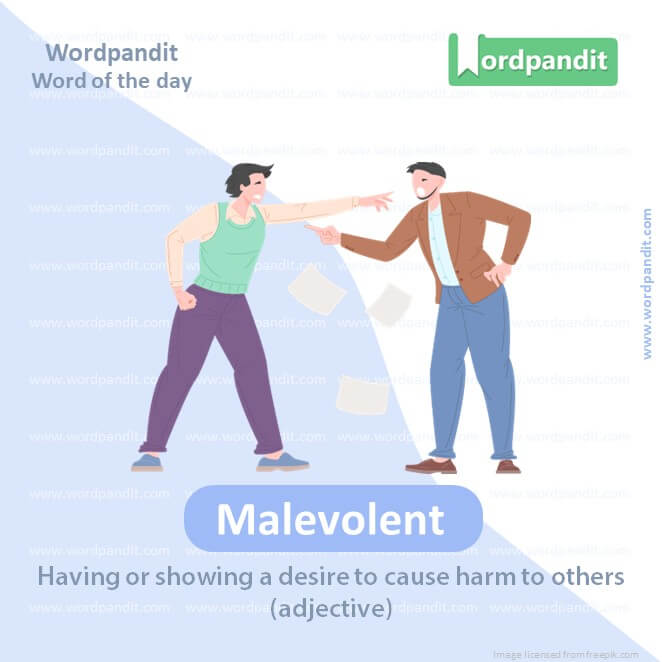Daily Vocabulary Words: List of Daily Used Words in Leading International Newspapers
Hi there. Welcome to this special section @ Wordpandit.
Our endeavour here is very simple: to highlight important daily vocabulary words, which you would come across in leading newspapers in the country. We have included the following newspapers in our selection:
• The New York Times
• The Washington Post
• Scientific American
• BBC
• The Guardian
• Psychology Today
• Wall Street Journal
• The Economist
We are putting in extensive work for developing your vocabulary. All you have got to do is be regular with this section and check out this post on a daily basis. This is your repository of words that are commonly used and essentially, we are posting a list of daily used words. Hence, this has significant practical application as it teaches you words that are used commonly in leading publications mentioned above.
Visit the website daily to learn words from leading international newspapers.

WORD-1: Berate
CONTEXT: So, US President Joe Biden got off a big plane in Tel Aviv on Wednesday and embraced a war criminal whose war crime-addicted military had, only hours earlier, committed yet another war crime of such horrendous nature and scale that it is destined to reverberate in memory and history.
SOURCE: Al Jazeera
EXPLANATORY PARAGRAPH: Imagine someone telling you off loudly because you accidentally spilled milk. When someone speaks to you in a loud and angry way because they’re upset or disappointed with something you did, that’s called “berate.”
MEANING: To scold or criticize someone angrily. (verb)
PRONUNCIATION: Buhrate
SYNONYMS: Scold, Chide, Rebuke, Reprimand, Criticize
USAGE EXAMPLES:
1. The teacher should not berate students for making mistakes.
2. She berated him for leaving the door open.
3. I felt bad after berating her for a minor error.
4. The coach was known to berate players who didn’t follow instructions.

WORD-2: Malevolent
CONTEXT: That will be the sick, defining image of Biden’s presidency: a hug on an airport tarmac with an Israeli prime minister who has always revelled in killing Palestinians, even desperate children, women and men who thought they were beyond Benjamin Netanyahu’s malevolent reach on the grounds of a hospital in besieged Gaza that, bit by bit, is being erased in blatant acts of genocide.
SOURCE: Al Jazeera
EXPLANATORY PARAGRAPH: Imagine a villain in a story who always wants to do bad things to the hero. Malevolent describes someone or something that wishes to do harm or evil.
MEANING: Having or showing a desire to cause harm to others. (adjective)
PRONUNCIATION: Malevohlent
SYNONYMS: Evil, Wicked, Malicious, Harmful, Nasty
USAGE EXAMPLES:
1. The malevolent witch cursed the princess.
2. He had a malevolent look in his eyes.
3. The legend spoke of a malevolent spirit haunting the forest.
4. Her intentions were malevolent, causing mistrust among her peers.

WORD-3: Plutocrats
CONTEXT: Britain, where one party of the right nearly always wins, with the press dominated by plutocrats and an electoral system warped to favour the Tories, has lessons to learn from how Poland’s Law and Justice party (PiS) was vanquished.
SOURCE: The Guardian
EXPLANATORY PARAGRAPH: Imagine people who have a lot of money, like big treasure
chests full of gold, and they use this money to have power or control over things. These rich and
powerful people are called “plutocrats.”
MEANING: People who are rich and use their wealth to influence or control things. (noun)
PRONUNCIATION: Plootoecrats
SYNONYMS: Tycoons, Moguls, Magnates, Aristocrats, Oligarchs
USAGE EXAMPLES:
1. The city was run by a handful of plutocrats.
2. Plutocrats often have significant influence over political decisions.
3. The party was attended by various renowned plutocrats from the business world.
4. The rise of plutocrats in the region raised concerns about economic inequality.

WORD-4: Vanquished
CONTEXT: Britain, where one party of the right nearly always wins, with the press dominated by plutocrats and an electoral system warped to favour the Tories, has lessons to learn from how Poland’s Law and Justice party (PiS) was vanquished.
SOURCE: [Source Not Provided]
EXPLANATORY PARAGRAPH: Think of two teams playing a game, and one team wins while the other team loses. The team that loses is “vanquished.” It means they were defeated.
MEANING: Defeated thoroughly in a competition or conflict. (verb)
PRONUNCIATION: Vankwisht
SYNONYMS: Defeated, Overcome, Overpowered, Conquered, Beaten
USAGE EXAMPLES:
1. The knight vanquished the dragon and saved the village.
2. The team felt proud to have vanquished their rivals.
3. With new strategies, they vanquished all challenges.
4. The army vanquished the invaders, ensuring peace in the land.

WORD-5: Immense
CONTEXT: With the massacre Hamas perpetrated in Israel and the mounting civilian casualties in Gaza, the deep logic of war is hidden by the immense human misery it produces.
SOURCE: Washington Post
EXPLANATORY PARAGRAPH: Imagine something so big, like a giant mountain or a huge elephant. “Immense” is a word we use to describe something that’s really, really big!
MEANING: Extremely large or great in size, amount, or degree. (adjective)
PRONUNCIATION: Immens
SYNONYMS: Huge, Vast, Enormous, Massive, Gigantic
USAGE EXAMPLES:
1. The universe is immense, full of stars and galaxies.
2. She felt an immense gratitude for her friend’s support.
3. The palace was of immense size and grandeur.
4. His contribution to the project was immense.
WORD-6: Vials
CONTEXT: For the first time this year, though, we have vaccines against our big three threats: flu, RSV and COVID. But vaccines in vials do not equal vaccinations in arms.
SOURCE: Scientific America
EXPLANATORY PARAGRAPH: You know those little glass bottles that sometimes have medicine or magical potions in them in stories? Those tiny bottles are called “vials.”
MEANING: Small containers, typically cylindrical and made of glass, used especially for holding liquid medicines. (noun)
PRONUNCIATION: Viles
SYNONYMS: Bottles, Flasks, Phials, Ampoules, Containers
USAGE EXAMPLES:
1. The scientist carefully labeled the vials.
2. She kept vials of essential oils on her shelf.
3. The nurse prepared the vials for the doctor’s use.
4. The magic kit came with vials of colored liquids.
WORD-7: Rampant
CONTEXT: To escape rampant online harassment, nearly 70 percent of female gamers hide their gender identity and avoid verbal communication with other players.
SOURCE: Scientific America
EXPLANATORY PARAGRAPH: Imagine plants growing super fast and wild everywhere! When
something, especially something not so good, grows or spreads very quickly and strongly, we say it’s “rampant.”
MEANING: Spreading unchecked and without restraint. (adjective)
PRONUNCIATION: Rampant
SYNONYMS: Uncontrolled, Wild, Unchecked, Unrestrained, Widespread
USAGE EXAMPLES:
1. Corruption was rampant in the city’s politics.
2. Weeds are rampant in the abandoned garden.
3. Rumors ran rampant after the unexpected announcement.
4. The disease spread rampant throughout the region.
WORD-8: Nurture
CONTEXT: Whether it was nature or nurture, I grew into a person who was a bit detached.
SOURCE: The New York Times
EXPLANATORY PARAGRAPH: Imagine a little plant. If you give it water, sunlight, and love, it grows big and strong. “Nurture” means to take care of and help something or someone grow and develop.
MEANING: To care for and encourage the growth or development of. (verb)
PRONUNCIATION: Nurcher
SYNONYMS: Foster, Cultivate, Care for, Support, Nourish
USAGE EXAMPLES:
1. Parents nurture their children to help them grow up healthy and happy.
2. She had a natural ability to nurture plants.
3. The teacher helped nurture his interest in science.
4. They nurture the hope of one day becoming champions.
WORD-9: Clumsiness
CONTEXT: I see the results in the social clumsiness I encounter too frequently. I’ll be leaving a party or some gathering and I’ll realize: That whole time, nobody asked me a single question.
SOURCE: The New York Times
EXPLANATORY PARAGRAPH: Have you ever accidentally bumped into something or dropped your toy? When someone is often a little unsteady or awkward in their movements, we call that “clumsiness.”
MEANING: Lack of skill or coordination in movement or actions. (noun)
PRONUNCIATION: Clumzeeness
SYNONYMS: Awkwardness, Ineptitude, Ungracefulness, Bumbling, Inelegance
USAGE EXAMPLES:
1. His clumsiness caused him to spill the juice.
2. She laughed off her occasional clumsiness with good humor.
3. The robot’s clumsiness made it difficult to use.
4. Despite his clumsiness, he was a kindhearted person.
WORD-10: Leftwing
CONTEXT: Palestinians, artists and curators from the so-called global south and leftwing Israelis are regularly reprimanded, dismissed or cancelled for views on Israeli policies that are deemed unpalatable.
SOURCE: The Guardian
EXPLANATORY PARAGRAPH: Imagine a game with two teams, one on the left side and one on the right. In real life, some people believe in ideas that are called “leftwing.” These ideas often focus on fairness, equality, and helping everyone.
MEANING: Relating to or supporting political views that are to the left of center, often favoring social equality and government intervention. (adjective)
PRONUNCIATION: Leftwing
SYNONYMS: Liberal, Progressive, Radical, Socialist, Leftist
USAGE EXAMPLES:
1. The leftwing party proposed new social welfare programs.
2. She often read leftwing magazines to stay informed.
3. The city has a strong leftwing political tradition.
4. Leftwing activists rallied for workers’ rights.
Vocabulary Today
In the dynamically evolving spectrum of language, staying updated with ‘vocabulary today’ is an integral part of mastering a language. These topical, contemporary words breathe vitality into our communication, bridging the gap between language learning and language living. But, how can we effectively learn ‘vocabulary today’?
Grasping ‘vocabulary today’ begins with exposure to contemporary contents. Engaging with current publications, social media platforms, movies, music, podcasts, and digital content can dive you into the real-world usage of ‘vocabulary today’. These platforms imbibe the vocabulary of the day, reflecting the evolution in language.
To consolidate the learning of ‘vocabulary today’, utilize memory-enhancing tools. Flashcards, language learning apps, or memory-enhancement software can make your study session an engaging venture and enhance word retention.
However, the secret sauce to learning ‘vocabulary today’ is practice. Inculcating these words in your regular dialogues, written correspondences, or social media posts will reinforce your grasp over these words. It brings you closer to ‘vocabulary today’, enhancing your language adaptability and fluency.
Better understanding of ‘vocabulary today’ can be achieved by staying connected with diverse social platforms which bring words from across locations and cultures, expanding your linguistic understanding. Also, participating in language forums, discussion groups, or language exchange platforms provides great insights into ‘vocabulary today’.
In the final analysis, staying abreast with ‘vocabulary today’ is an exciting quest that requires consistent exposure, active practice, and social engagement. As you embrace this journey, you will find your language proficiency growing with every new word, enabling you to step into the dynamic world of contemporary language with confidence and mastery. Remember, ‘vocabulary today’ is not static, it flows like a river, always fresh, always changing, and always enriching!











